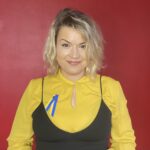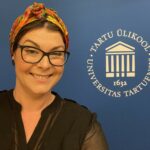Biases and Stereotyping
Photo by Jesse Martini on Unsplash
Human evolution has taken us very far as a species. On the other hand, our biases still limit us to this day. Let’s take the universal human need for social homogeneity, for example. Evolutionarily, the need to ‘fit in’ led to more cooperation and higher chances of living longer, even going back as far as cavemen (it is very difficult to hunt and carry a mammoth back to camp by oneself, right?) Cooperation is only feasible when fitting in to a certain extent, which our reptilian brain is still aware of.
The human need to fit in makes us biased
In the age of social media, however, the need to fit in makes us vulnerable to the addictive nature of external validation, algorithmic manipulation and can limit our critical thinking skills.
This manifests in several way:
- We tend to believe information that comes from people we trust
- We like people who think like we do
- We tend to believe information that suits the narrative of what we already believe to be true
- We cling on to information we hold true, even if evidence to the contrary is presented
That makes us highly vulnerable to trusting blindly information from our peers. What works for cooperation within a community can impair our critical thinking skills.
Let’s say, for example, you are interested in history. Most historical accounts are taught to us in school by people we look up to, or at least whom we do not question much. We are taught narratives alongside our peers and it becomes common knowledge for a whole generation.
Thinking about Christopher Columbus and Jack the Ripper – critically!
As an adult, however, you might come to find that Christopher Columbus was not actually simply an adventurer, but committed many atrocities that have not received enough attention in official historical accounts, due to the cultural bias that natives’ accounts about ‘discovering’ America cannot be trusted. Or you might realise that cultural bias is heavily present in most research fields and that Black Studies have been uncovering a whole other side of history when critically analysing older research, whilst keeping in mind the stereotypes of the time. Did you know that even Jack the Ripper’s victims being described as sex workers has been called into question, as the articles at the time speak of “ruined women”, but in reality at least some of them were separated from their husbands, therefore unemployable and simply too poor for lodging houses?
Common knowledge is not questioned often. Without accounting for stereotypes and biases, however, we are missing an important puzzle piece when trying to form an educated opinion: we do not understand all the nuances and details of the context correctly.
Five helpful tips to remedy biases
Take inventory of your own biases and stereotypes. That can be uncomfortable, but is necessary in order to recognise when our subjective knowledge of the situation stands in the way of critical analysis.
Make sure to take a minute to try and identify any hidden motives, stereotypes or narratives in media texts, be they audiovisual, textual or even memes. Who would benefit from the underlying bias?
Look at representation. Are different social groups and opinions voiced? Do the main actors have a voice of their own or is someone from another social group speaking for them? Does it match how those social groups represent themselves in online spaces?
Try to self-regulate said biases when assessing new information. What have you previously thought of the subject matter? What’s that based on? Have you personally researched it recently or is it something you consider to be universally true?
Carry out a quick search online. First, search with keywords that would confirm your previous knowledge. Second, search with keywords that are the opposite of what you believe to be true. Comparing the results of the two searches will probably get you closest to seeing two sides of the story, which, in turn, enables one to analyse the situation with a clear head.
If you’re a trainer or educator and wish to open up the role of stereotypes in forming opinions, check out this resource on stereotypical photos of African countries. Make sure to allow ample time for discussion, especially when it is the first time for the group to dive into the topic.






